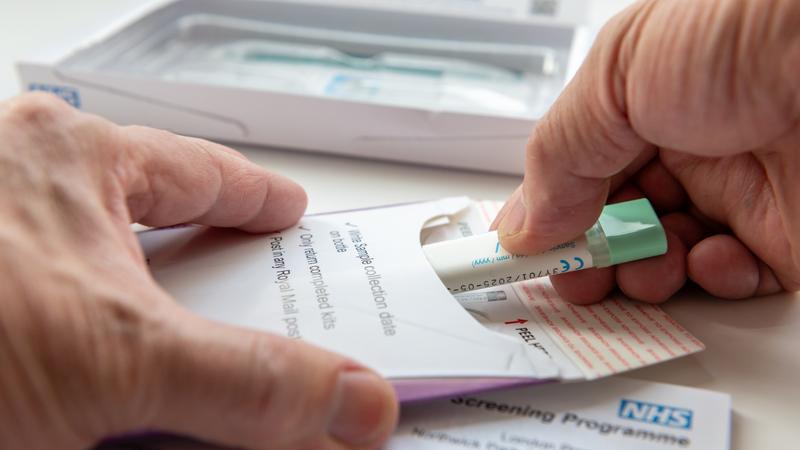Evaluation of the FIT@80 pilot programme to lower the screening threshold for bowel cancer

What is the issue?
Almost 40,000 people were diagnosed with bowel cancer in the UK between 2022 and 2023. Bowel cancer is a type of cancer that begins in the large intestine. The timing of diagnosis is important, as early diagnosis greatly increases the chance of survival.
The Faecal Immunochemical Test (FIT), first introduced in the UK in 2019, can detect tiny amounts of blood in stool samples, and can help spot early signs of bowel cancer. In England, FIT is offered to people aged 54-74 every two years, with the threshold for further examination set at above 120ug/g. As part of the NHS Long Term Plan to diagnose 75% of people with cancer at stages 1 and 2, NHS England is trialling a lower FIT threshold to 80ug/g across a number of pilot sites to detect more cases of bowel cancer earlier. However, a lower threshold will also increase screening volumes, which will require additional resources for follow up tests such as endoscopies. The pilot sites will likely need to transform their existing services to create capacity for the additional screening activities.
How are we helping?
CCHSR (RAND Europe and the University of Cambridge) has been commissioned by NHS England to evaluate the trial to lower the FIT threshold to 80ug Hb/g for bowel cancer screening across pilot sites. The aim of this study is to understand the barriers and enablers of lowering the FIT threshold at the pilot sites, and the impact on operational activity and patient outcomes.
To achieve this, we are working on four core work packages (WPs).
- WP1: We will conduct a brief scoping phase to engage with pilot sites and finalise our evaluation plan.
- WP2: We will conduct interviews with staff at pilot sites, conduct observations at screening centres, and hold workshops to understand the barriers and enablers of implementing the screening services at a reduced FIT threshold.
- WP3: We will collect data from sites and from national data sets related to outcomes and activity of the screening and symptomatic pathways.
- WP4: We will cross-analyse and synthesise findings to develop a final report with our key learnings.
We will also involve patients and the public at key phases of the project to help inform the design, interpretation and dissemination of results.
Findings from this report will help to inform the implementation of the lower FIT threshold at a national level.
RAND Europe project team
University of Cambridge project team
Lily Taylor
Juliet Usher-Smith
Nora Pashayan
James Kang





